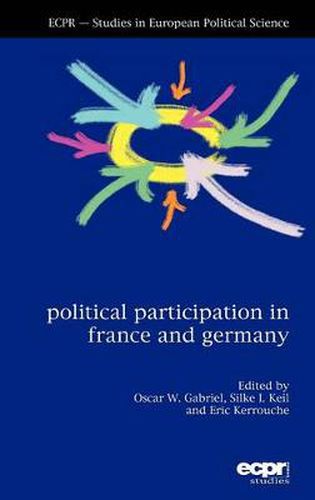Readings Newsletter
Become a Readings Member to make your shopping experience even easier.
Sign in or sign up for free!
You’re not far away from qualifying for FREE standard shipping within Australia
You’ve qualified for FREE standard shipping within Australia
The cart is loading…






The main objective of this volume is to answer the question of how France and Germany can be situated in the world of participatory political communities. It sets the historical, theoretical and institutional framework for the comparative empirical analysis of the forms, patterns, trends and determinants of citizen participation in France and Germany. It starts with an outline of the participatory traditions of the two respective countries. Thereafter, it turns to the theoretical foundations of empirical research regarding the role of political participation in modern democracies, and gives an overview as to how the perception of political participation has changed over the years. Furthermore the forms of conventional participation, particularly with regard to electoral participation, and unconventional participation like protest and other new forms of citizen involvement are analysed in detail. Following the new approaches in participation research, social participation is not only supposed to correlate with political participation, but is a specific form of civic engagement for itself. Therefore this aspect is included in the analyses. The volume does not only discuss national trends and patterns but also local ones because elementary differences can be noticed here, depending amongst others on the level of centralisation of the state structure.
$9.00 standard shipping within Australia
FREE standard shipping within Australia for orders over $100.00
Express & International shipping calculated at checkout
The main objective of this volume is to answer the question of how France and Germany can be situated in the world of participatory political communities. It sets the historical, theoretical and institutional framework for the comparative empirical analysis of the forms, patterns, trends and determinants of citizen participation in France and Germany. It starts with an outline of the participatory traditions of the two respective countries. Thereafter, it turns to the theoretical foundations of empirical research regarding the role of political participation in modern democracies, and gives an overview as to how the perception of political participation has changed over the years. Furthermore the forms of conventional participation, particularly with regard to electoral participation, and unconventional participation like protest and other new forms of citizen involvement are analysed in detail. Following the new approaches in participation research, social participation is not only supposed to correlate with political participation, but is a specific form of civic engagement for itself. Therefore this aspect is included in the analyses. The volume does not only discuss national trends and patterns but also local ones because elementary differences can be noticed here, depending amongst others on the level of centralisation of the state structure.